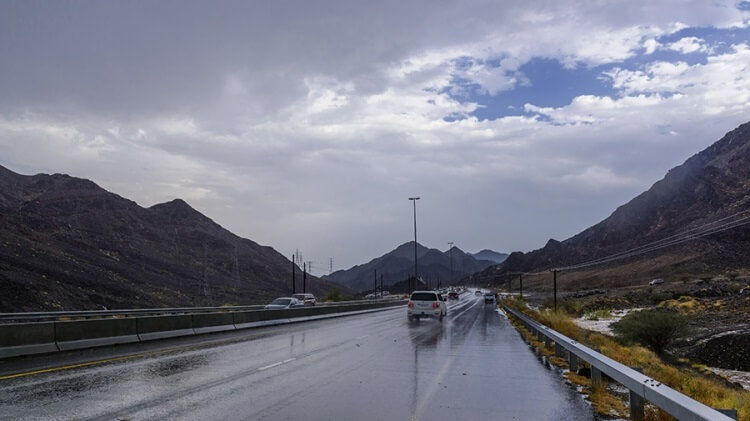
An aircraft loaded with a new cloud seeding material developed by Khalifa University has taken flight to seed warm clouds in UAE skies.
The cloud seeding material developed by Khalifa University’s Dr. Linda Zou, Professor of Civil Infrastructure and Environmental Engineering, has generated significant attention since Dr. Zou won in 2016 a USD 1.5 million, 3-year grant from the UAE Research Program for Rain Enhancement Science (UAEREP) to research the use of nanotechnology to enhance rainfall.
Over the past three years, Dr. Zou’s team has made steady progress towards designing and fabricating the nanotechnology-enabled cloud seeding materials in the lab. Now, the team has identified a novel, scalable method for fabricating large quantities of the particles, allowing for mass production. Actual seeding operations have just began.
“We have successfully fabricated 75 kilograms of the cloud seeding particles, which is made of a sodium chloride crystal core coated with titanium dioxide nanoparticles, thanks to a novel dry particle coating process that greatly simplified the process of coating of nanoparticles on the core materials,” Dr. Zou explained.
Being able to scale up development in a high-quality and cost-effective way is key to transferring the research from the laboratory to the market, where it can bring tangible benefits to society.
Dr. Zou’s research has played an important role in helping to UAEREP to achieve its overarching objective of enhancing rainfall in arid regions, such as the UAE, through new advances in the underlying science of rainfall and the technologies to stimulate it. Her work further showcases the world class research capacity of UAE faculty at the country’s leading science and technology university and positions the UAE as one of the leaders in rainfall enhancement research.
Cloud seeding is the science of adding particles to the atmosphere to serve as nuclei for the condensation of water vapor to form water droplets formation that grow and ultimately become rainfall from clouds that may otherwise produce no rain. It is being increasingly recognized as a viable tool that could be used as part of a broader strategy to achieve water security, particularly in water-scarce regions like the UAE. Studies have shown that cloud seeding can increase rainfall between 5% to 20%, which can help restore groundwater reserves, boost agricultural production, and reduce to some extent the UAE’s heavy reliance on freshwater produced by energy-intensive seawater desalination.
Dr. Zou’s research is exploring for the first time the use of nanotechnology to improve the properties of cloud seeding materials.
Conventional cloud seeding materials, such as salt particles, provide nuclei around which water vapor can condense. Once enough water vapor condenses into water droplets that are large enough, they fall as rain.
Dr. Zou conceptualized that nanotechnology can be leveraged to improve a salt particle’s ability to condense water more effectively, and in turn produce rain.
“The synergistic effect of the hydrophilic – or water loving – titanium dioxide shell and the hygroscopic sodium chloride core, which absorbs water from its surroundings, has enhanced condensation and ability for water droplet formation and growth,” Dr. Zou explained.
The groundbreaking research outcomes have been published in high impact journals such as ACS Nano (2017). One international patent application has been filed with the US Patent and Trademark Office (USPTO), while another provisional patent has been filed for a new but equally interesting material.
The project has been evaluated by the International Scientific Direction Committee of the UAEREP, who have commented that Dr. Zou’s project has been extremely successful, both in terms of the scientific and technical achievements as well as in shedding light on how innovative technologies (in this case nanotechnology) provides exciting new directions in the development of seeding materials for rainfall enhancement.
This and other sustainable water research taking place at Khalifa University aim to position the UAE as a leader in advanced water technologies to address issues of water security.
Erica Solomon
Senior Editor
24 October 2019